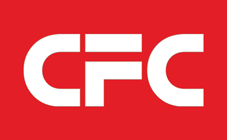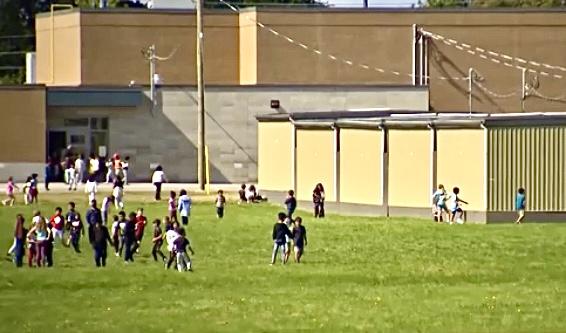加拿大总理特鲁多将会在周三11点15分进行全国讲话。
总理特鲁多宣布进一步放宽对企业纾困的门槛:
因为有企业抱怨要符合3月营业额下降30%后才能申请纾困是不容易的,因为有些营业额减少的效应要稍晚才会浮现,所以特鲁多说政府调降了门槛,如今只要下降15%就能申请,且企业可以对比上一个的营业额,不需要对比去年同期的营业额。对于非牟利企业,则可以今年1月和2月的收入来做比较基准。
特鲁多说,政府愿意资助企业75%的员工薪资的计划开始发酵,如今已经有企业开始回聘员工。
特鲁多也扩大对学生和兼职者的资助。
但当有越来越多人开始复工后,会不会导致另一波疫情高峰呢?特鲁多则提醒,的确在经济活动的同时仍要注意保持社交距离,政府也会持续注意疫情发展。
以下为演讲英文全文:
Hello, everyone.
Happy International Day of Pink. Today, we wear pink to stand up to bullying and support those facing discrimination. If you feel alone, if you’re anxious or scared, know that we’re here with you today and every day.
I want to begin this morning by addressing Canada’s Jewish community. Tonight at sundown marks the beginning of Passover. Usually, this is a time for family and friends to gather around the Seder table. But tonight will truly not be like all other nights. I know staying in tonight and not gathering extended family will be hard, but it’s the best way to keep yourselves and your loved ones safe. I hope you still find a way to connect with family and friends, whether it be on the phone or through video chat. To all those celebrating Passover, Chag Pesach Sameach.
Over the past few weeks, we’ve all had to make changes because of this pandemic. Staying indoors as much as possible and not seeing friends and family is a big adjustment for everyone. But it’s especially hard for some people. If you’ve lost your job, if you work in an industry that’s been hit hard by this virus, you’re worried about your family and your future. What makes the situation so difficult is how quickly it all happened.
Through no fault of your own, your whole world has been turned upside down in a matter of weeks. And that can create even more uncertainty, and even more anxiety. So we’ve brought in a whole range of new measures to help families and workers, seniors and business owners get through this. We’ve put in place a three-point economic plan. It supports business owners, including through new loans, while helping those who no longer have a paycheque through the CERB and protecting jobs with the Canada Emergency Wage Subsidy.
I know many of you are anxious to see this subsidy delivered. We’re calling on the opposition to join us in bringing the House back to pass legislation so you can get the support you need as soon as possible. Cabinet will be meeting this afternoon. As usual, most cabinet members will be on the phone and I will be attending this one in-person to discuss next steps.
(Speaking French) Since we announced the wage subsidy, we have had a great many conversations with business people, unions and workers. I want to thank them for their advice and their viewpoints. These conversations have helped us to adjust what we initially announced in order to include more businesses and help more people. And that’s what I’d like to talk about today.
We said that businesses had to demonstrate that their revenue had dropped by 30 per cent this month compared to the last year in order to receive the subsidy. We recognize that for non-profit organizations and fast-growth companies that could present a problem, so we are going to relax those conditions. First of all, businesses will have to show a decline of 15 per cent in their revenue for the month of March rather than 30 per cent in order to consider the fact that the pandemic has had an impact on their activities in March. Businesses will also be able to choose to use the month of January and February as a reference period to show a loss of revenue.
With respect to charities and non-profits, we understand that you are facing a different reality when it comes to funding. For that reason, you will have a choice. You can include or exclude the government subsidy when you calculate your loss of revenue. If your business is affected by COVID-19, the government will give you up to $847 a week for every employee. And as we already announced, that subsidy will be retroactive to March 15. (end French)
Since we announced the Canada Emergency Wage Subsidy, we have had a number of conversations with stakeholders and workers who have provided us with valuable feedback that can help us refine what we put forward. I want to thank them for their input. We want to make these emergency measures as effective and inclusive as we can so we’re listening and making adjustments along the way. We previously announced that to qualify for the subsidy, businesses would have to show a 30 per cent drop in revenues when comparing the month this year to the month the previous year.
We recognize that this could be an issue for non-profits, fast-growing companies like start-ups and new businesses. So we’re going to put in place more flexible rules. Companies will now have the option of using January and February of this year as reference points to show a 30 per cent loss. And businesses will only need to show a 15 per cent decline in revenue for March instead of 30 per cent, because most of us only felt the impact of COVID-19 about halfway through the month.
We understand that charities and non-profits are experiencing different types of pressures when it comes to funding. For this reason, they will have the choice to include or exclude government funding when calculating loss in revenue. If your company or organization has been impacted by COVID-19, the government will give you up to $847 a week per employee. And as we’ve said before, this subsidy will be retroactive to March 15. Our government understands that not all businesses operate the same way and that’s why we’re making changes to include as many of you as possible.
We will keep listening, but we really hope you will use this help from your country and from your fellow citizens to re-hire and pay your workers. If our economy is to get through this, we need businesses to survive and workers to get paid. Job numbers for March will be out tomorrow and it’s going to be a hard day for the country. We’re facing a unique challenge. But I know that if we pull together, our economy will come roaring back after this crisis.
(Speaking French) In recent weeks, we introduced unprecedented measures including the Emergency Wage Subsidy and the Canada Emergency Benefit to help workers, families and businesses. Having said that, some people are not eligible for the benefits we put in place. They need additional support. I’m thinking of gig workers or people who provide home care or people whose work hours are 10 hours or less a week. We are currently looking for solutions and we will help you.
Our seniors are also going through a very difficult period these days because they are particularly vulnerable to COVID-19. At the same time, they’re concerned about the impact of the economic decline on their savings and other consequences of the crisis. We will have additional measures to put in place to help the most vulnerable Canadians. Now when it comes to students and young people who are preparing to enter the job market, we will have a number of measures to help you as well. This morning we are starting with the first step. (End French)
To help the people and small businesses affected by COVID-19, we’re making changes to the Canada Summer Jobs program this year. We will now give CSJ employers a subsidy of up to 100 per cent to cover the costs of hiring students. We will also extend the timeframe for job placement until the winter, because we know that some jobs will start later than usual. And because many businesses have had to scale back their operations, they will be able to hire students part-time. Our government is also encouraging all employers who have been impacted by COVID-19 to make adjustments so work can continue. For example, if you run a local food bank, you may be doing deliveries instead of serving people on site. So you can hire students to help you.
We will also be asking MPs across the country to reach out to businesses and organizations providing critical services in their communities to look at how students can help during this critical time. In this economic climate, it’s hard for people of all ages to find work, but young people are especially vulnerable. They’re new to the workforce, so they don’t have a lot of money set aside for this kind of situation. At the same time, they need work experience to secure their next job, and money to cover their living expenses and help with tuition for the rest of the year.
Today, we’re taking a step in the right direction to help young people find work during this difficult time, but I want to be clear: We will be doing more. Just like we will do more for those who need help but are not eligible to receive the benefits we’ve announced so far. We’re also working around the clock to ensure that our front-line workers have everything they need to save lives and stay safe. Overnight, we received a half a million N-95 masks from 3M and they’ll be distributed across the country where they are most needed.
I know the past weeks haven’t been easy, but we’re going to get through this together if everyone keeps following the instructions from public health experts. So please, stay home as much as possible. Only go out for essential things, like groceries and medications, and try to make that trip once a week or less. And when you do, remember to keep two metres from those around you. That’s the best way to stay healthy and protect our front-line workers who are doing so much to help all of us.
Once again, thank you for joining us this morning.
(CFC新闻)
 新华侨网
新华侨网






